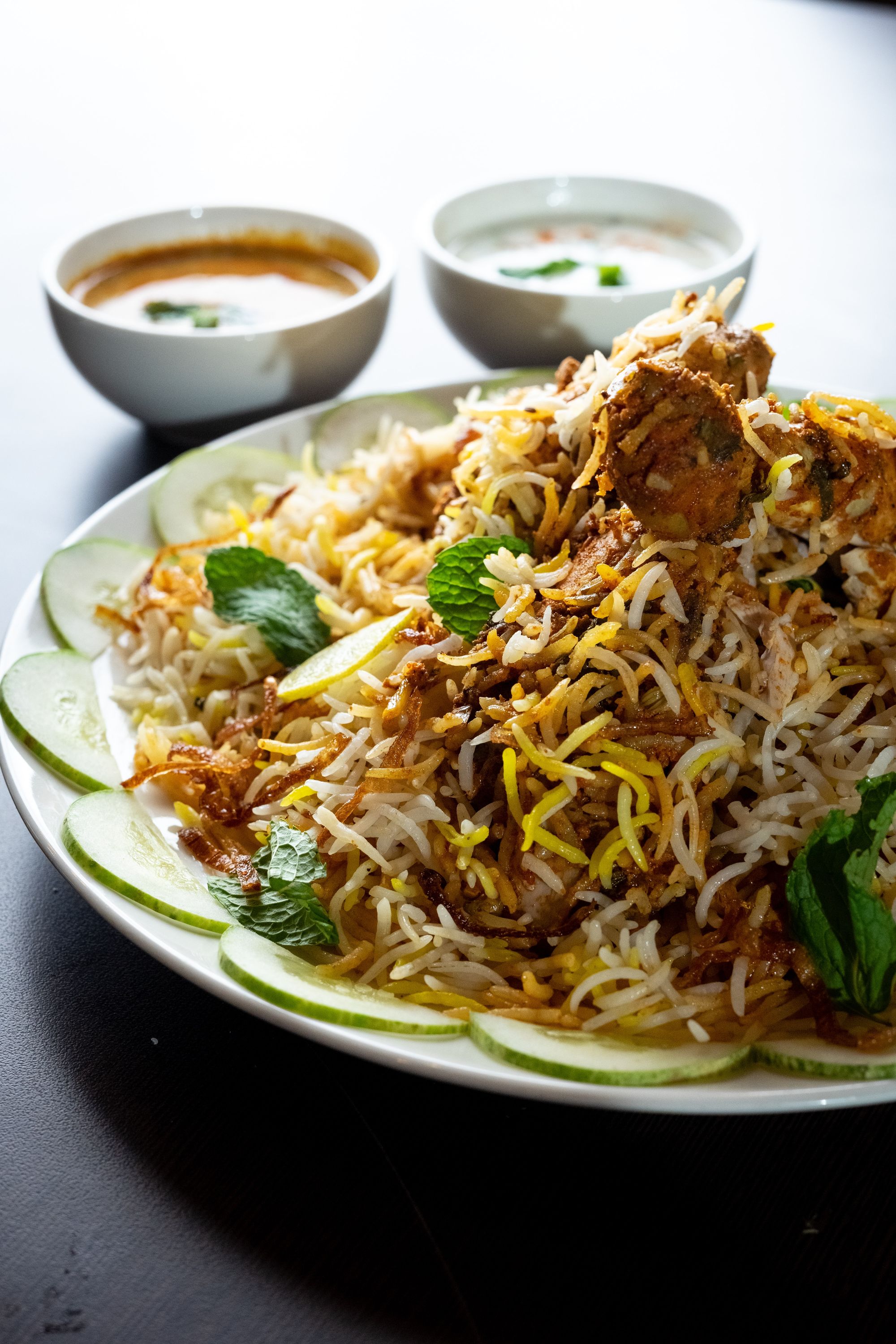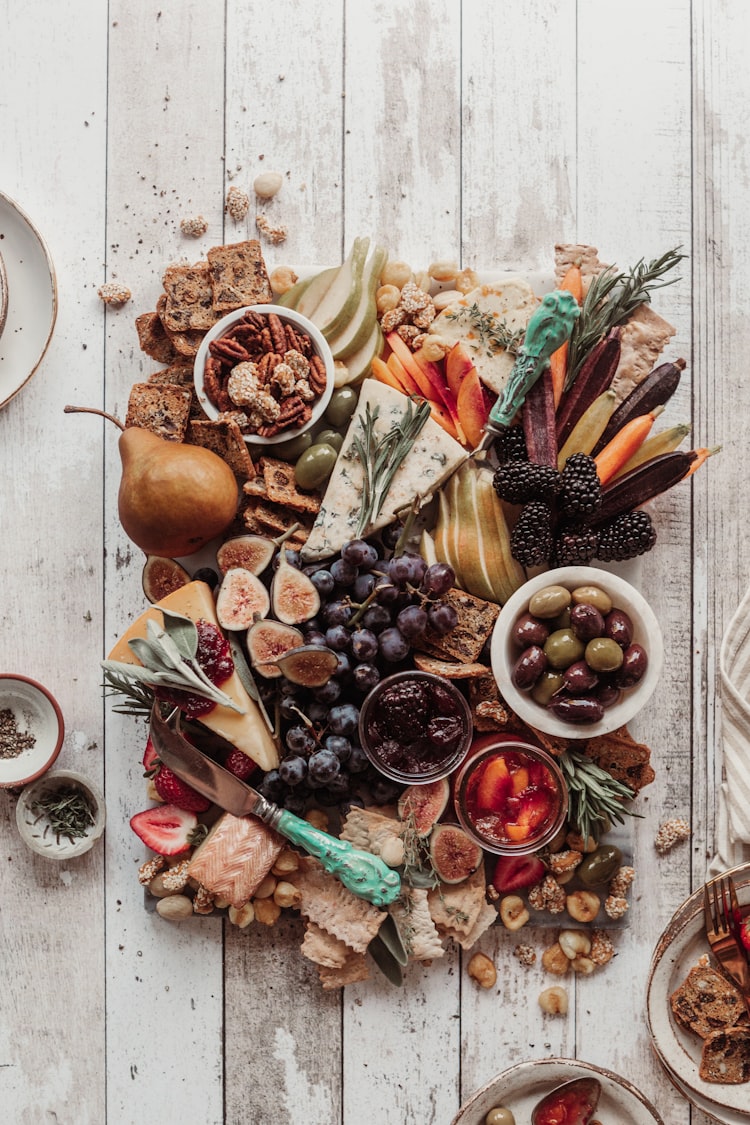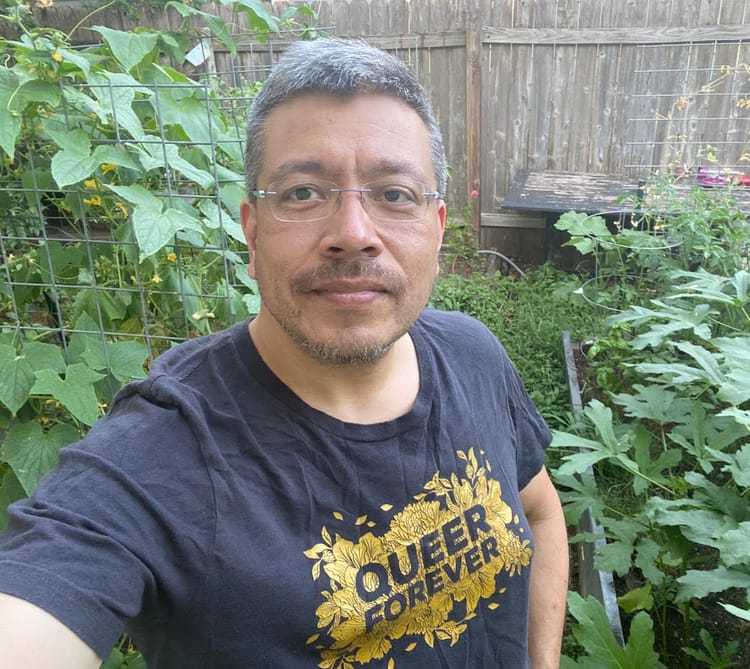Back to Hashwi

Suzanne Walker is a Chicago-based writer and editor. She is co-creator of the critically acclaimed, award-nominated graphic novel Mooncakes (2019, Lion Forge/Oni Press). Her short fiction has been published in Clarkesworld and Uncanny Magazine, and she has published nonfiction articles with Uncanny Magazine, StarTrek.com, Women Write About Comics, and the anthology Barriers and Belonging: Personal Narratives of Disability. She has spoken at numerous conventions on a variety of topics ranging from disability representation in sci-fi/fantasy to comics collaboration. You can find her posting pictures of her cat and chronicling her longsword adventures on Twitter: @suzusaur.
I haven’t made hashwi since 2019.
For the decade prior to that, it was a staple in my kitchen: my go-to comfort food, my signature dish for guests, the secret weapon at work potlucks. It’s not nearly as labor-intensive as other Lebanese dishes like kibbeh or stuffed grape leaves or kaak (known in our house as Easter bread), and its simplicity is why my mother taught it to me as a nineteen-year-old first trying to make her way in the kitchen. Ground meat, rice, spices, and pine nuts; lamb if I could afford it but more often beef in my college years. Every roommate and friend who tried it adored it.
As time went on, I made my own alterations to the recipe, which I doubt could be called authentic but suited my own tastes. I used significantly larger spice portions than my mom ever does, and at some point switched to sushi rice in place of the recommended box of Uncle Ben’s. It makes for a much stickier concoction, a texture more like risotto than rice, but I liked it that way, especially on cold winter nights. I made it at least twice a month through most of my twenties; sometimes more like once a week.
And then my digestion problems started getting worse.
With the one-two punch of GERD and IBS, my list of dietary restrictions grew larger every year. The cinnamon in the spice mix triggered my acid reflux and lamb was too fatty for my stomach to tolerate. I started substituting beef again, but even that proved too much after a while. The last time I made it was for a fire-spinning gathering in September 2019, and I think I knew even then it was the final hurrah. I went old school: bought a full cut of lamb meat, hand-trimmed the fat, and ground it up in a food processor, just like my grandmother used to (except she used an actual meat grinder). I used my mom’s more subtle spice ratios and went back to boxed white rice, just in case. At the end I had a dish my guests adored but one I still couldn’t eat more than a few bites of for fear it would trigger a flare-up. And I haven’t made it since.
꘏
“What connection do you have to Lebanese culture, other than food?” my mom asked me, somewhat disdainfully, about five years ago. I had been telling her about the secondary-world setting of my new novel draft, and how I chose to base it off of the tenth-century Middle East in part as a way to research and connect with my heritage.
I bristled at the question at the time—but considering it now, I can’t help but think that maybe she’s right. I don’t have much connection to my culture other than food. I’m third-generation and half white; my grandparents died when I was young and my mom & her siblings were raised in the era of assimilation. I struggled to belong as one of the few brown kids in a school where everyone else was either Black or white, got a couple of gross comments from white kids, but experiencing racism isn’t culture. Honestly, what I felt in connection to being Lebanese was an odd sense of loneliness. A lack of connection rather than people with whom to share experiences. All I have are vague memories of my grandfather playing the oud and a half-dozen recipes from half a world away.
But those recipes are a connection; a far deeper connection than my mom or I considered in that conversation five years ago. We find similarities and differences in the exchange of cooking; we echo our ancestors and evolve into something new. In 2018 we visited my Lebanese-Canadian cousins for my great-uncle’s 90th birthday, a different branch of the family from whom the hashwi recipe originates. They hailed from a different part of the country and had never made hashwi. I taught it to them, just as they taught me to make kafta, a kabob that never made it onto the plates of the Lebanese-Michiganders. That trip was the most connected I’d ever felt to my heritage, and it was rooted in the veritable feast we cooked to celebrate my great-uncle’s life.
Unfortunately, if food is culture, if food is far more than some ingredients in the fridge, its loss represents something far greater than a list of dietary restrictions. That childhood sense of loneliness returned, with nothing to connect me to those who made these recipes so long ago. The pandemic amplified this, of course, but based on the faint sadness that dogged me through my family’s food-centric gatherings in 2019 I suspect it’d have happened regardless. If I no longer had food to connect me to my heritage, was I even Lebanese? It was an ironic reversal from my childhood, where being Lebanese embarrassed me and I wanted to erase it. But life felt pretty empty without that piece of me. There existed a hole, one I had no idea how to fill.
I have always found solace in sharing my recipe for hashwi with friends, in having them know this piece of myself and my culture, replicating it in their own kitchens. At this point it’s in regular use among people who’d never heard of it before I served it to them. That comforts me now; puts some dirt back in the hole, if we’re to continue with the metaphor. More dirt is added thanks to the new medication I’m on, which has brought the worst of my symptoms under control and allowed me to add some foods and flavors back to my diet. In April I attended a family wedding and ate a full Lebanese meal for the first time in years—still can’t eat fried kibbeh and falafel, but I ate grape leaves and shawarma and tabbouleh. It was glorious.
I have yet to re-try the fatyres from the local Middle-Eastern bakery, and I still haven’t come back to hashwi. Part of me is afraid to, honestly—what if my body still rejects it? But I’m working on new ways to connect with my history, my family and my people. In the meantime, I know one day I’ll make it again, for friends if not for myself. And I am content knowing that now, you all can make it too.
Suzanne’s Hashwi

This is a recipe for a savory rice dish with spiced meat, perfect for any occasion. Prepared as written, it produces enough for 4 generous servings, or 6-8 servings as a side.
Get the Recipe: PDF, Google Doc
If you’d like to own the Personal Canons Cookbook ebook, which collects all these essays and recipes in easy-to-reference, clickable format—plus loads of bonus recipes from me!—join the Stone Soup Supper Club. The ebook is free for subscribers, who will get the download link in their inboxes in the first Supper Club email of 2024!
Remember: Care for yourself and the people around you. Believe that the world can be better than it is now. Never give up.
—Gailey






Member discussion